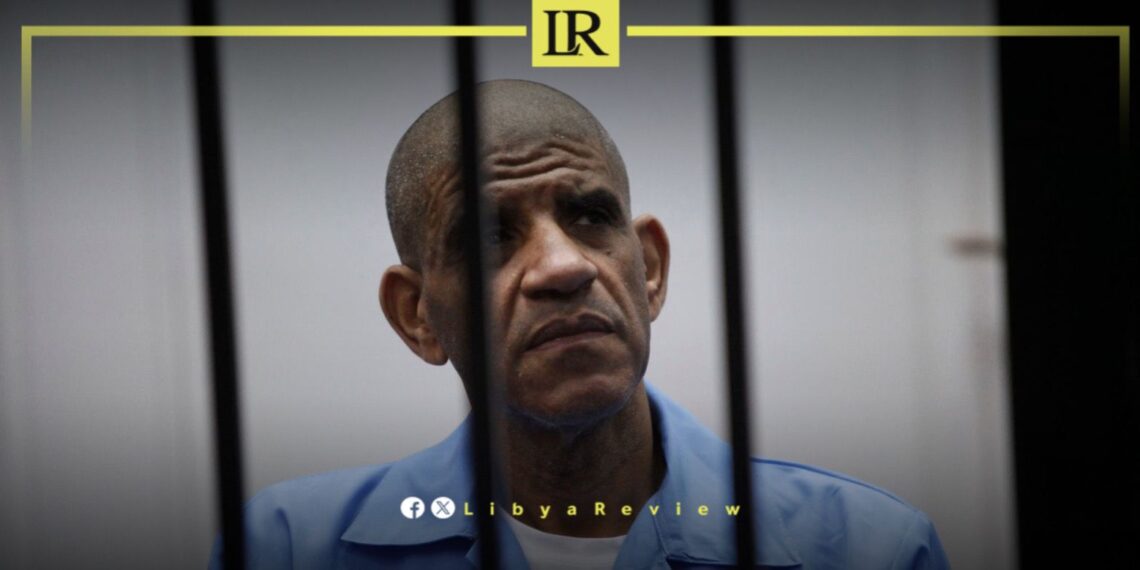Former Libyan intelligence chief Abdullah Al-Senussi is set to appear before the Tripoli Appeals Court next Monday as legal proceedings against him continue. Al-Senussi, a key figure in Muammar Gaddafi’s regime, has been imprisoned since the fall of the Gaddafi government in 2011.
His lawyer, Ahmed Nashad, confirmed the court date, responding to growing concerns about Al-Senussi’s health.
Nashad stated that while Al-Senussi’s condition is “relatively stable,” it remains fragile due to his advanced age and ongoing medical issues. He dismissed recent reports of a severe decline in Al-Senussi’s health as “inaccurate,” but acknowledged that his client’s condition can deteriorate unpredictably.
Despite a previous court ruling that granted Al-Senussi release on health grounds, he remains in custody, highlighting his status as one of Libya’s most prominent detainees.
Abdullah Al-Senussi, often dubbed the “Black Box” of the Gaddafi regime, was the chief of military intelligence and a close confidant of Gaddafi. He is implicated in numerous human rights abuses, including the notorious 1996 Abu Salim prison massacre, where over 1,200 prisoners were killed.
Captured in Mauritania in 2012 and later extradited to Libya, Al-Senussi has been at the center of prolonged legal battles. In 2015, he was sentenced to death by a Libyan court, though the sentence has not been executed due to ongoing appeals and health concerns. His trial has attracted significant attention both in Libya and internationally, with human rights groups questioning the fairness of the legal process in a country still struggling with instability.
Al-Senussi is also wanted by the International Criminal Court (ICC) for crimes against humanity, with a warrant issued for his arrest in 2011. However, Libya has resisted extraditing him, insisting on prosecuting him within its own judicial system.
The ongoing debate over Al-Senussi’s health adds further complexity to his legal situation. While his lawyer insists that his condition is stable, the previous ruling for his release on health grounds underscores the gravity of his situation. Despite this, Al-Senussi remains imprisoned, and his upcoming court appearance is highly anticipated as it may reveal more about the future of one of Libya’s most controversial figures.
Al-Senussi’s case continues to symbolize the broader challenges Libya faces in seeking justice and reconciliation in the post-Gaddafi era.


